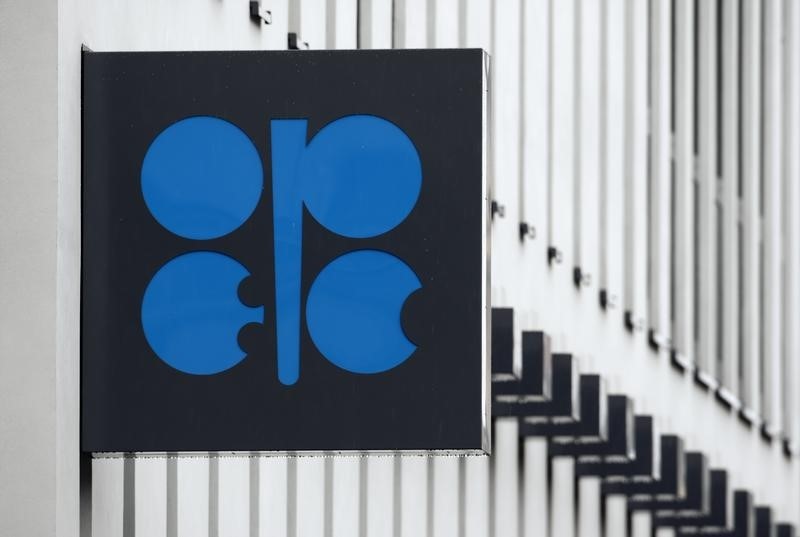By Emily Chow and Trixie Yap
SINGAPORE (Reuters) -Oil prices inched up on Tuesday on expectations of healthy market fundamentals, following an OPEC report saying demand remains strong, and concerns that supplies might be disrupted as the U.S. cracks down on Russian oil exports.
futures gained 30 cents, or 0.36%, to $82.82 a barrel by 0413 GMT. U.S. WTI crude futures climbed 28 cents, or 0.36%, at $78.54 a barrel.
“Following the heavy sell-off in the market over the last three weeks, oil has managed to find some support … While fundamentals may not be as bullish as initially thought, they are still supportive, with the market likely to be in deficit for the remainder of this year,” ING analysts said in a email note.
“The surplus we see early next year could even be erased if the Saudis roll over their additional voluntary supply cuts,” they added.
In its monthly report, the Organization of the Petroleum Exporting Countries blamed speculators for a recent drop in prices. It also slightly raised its 2023 forecast for growth in global oil demand and stuck to its relatively high 2024 prediction.
Last week, oil prices slid to their lowest level since July, hurt by concerns that demand could wane in in top oil consumers U.S. and China. Chinese consumer prices swung lower in October to levels not seen since the COVID-19 pandemic and exports for the month contracted more than forecast.
The U.S. energy department plans to buy 1.2 million barrels of oil to help replenish the Strategic Petroleum Reserve after selling the largest amount ever from the stockpile last year, which could further buoy demand.
A U.S. crackdown on Russian oil exports could potentially disrupt supply, supporting prices further.
The U.S. Treasury Department has sent notices to ship management companies requesting information about 100 vessels it suspects of violating Western sanctions on Russian oil, the biggest step by Washington since an imposed price cap to restrict oil revenues to Moscow.
Renewed talks in Iraq to restart an oil pipeline however could be a headwind for the market, analysts at ANZ and ING say.
Iraq’s oil minister expects to reach an agreement with the Kurdistan Regional Government and foreign oil companies to resume oil production from the Kurdish region’s oilfields and resume northern oil exports through the Iraq-Turkey pipeline.
Turkey has halted 450,000 barrels per day (bpd) of northern exports through the Iraq-Turkey pipeline since March 25 after an International Chamber of Commerce arbitration ruling.
Focal points for the market include the International Energy Agency’s latest monthly oil market report later in the day.
U.S. inflation data will also be published on Tuesday, while U.S. producer price index data is due on Wednesday.
Some factors such as whether the APEC summit will improve Sino-U.S. relations, and if China will further cut interest rates to support the economy, may also be supportive of oil prices, said Li.
Read the full article here





